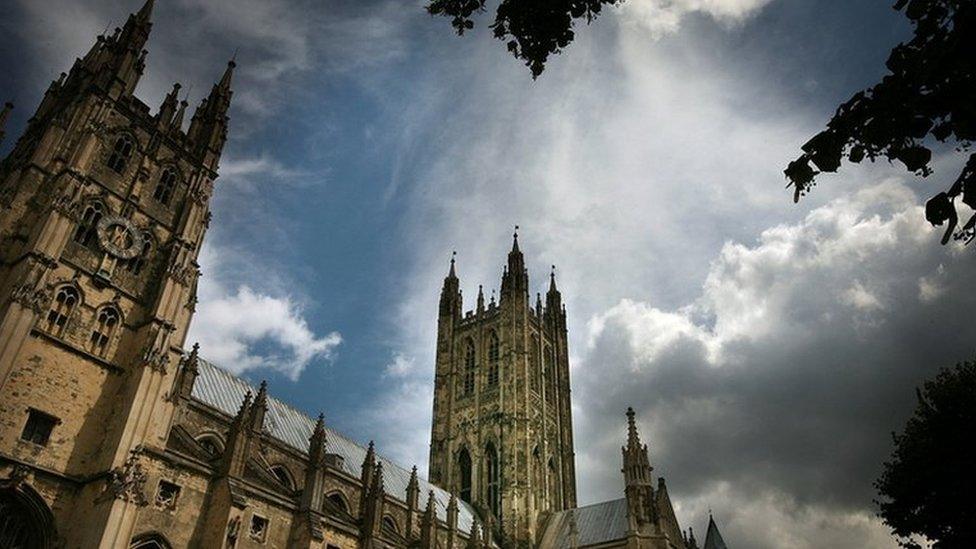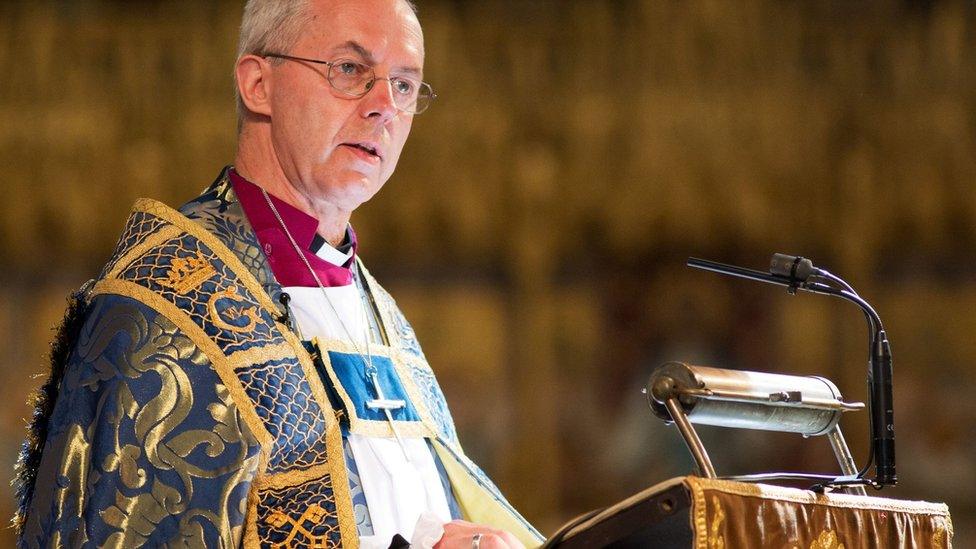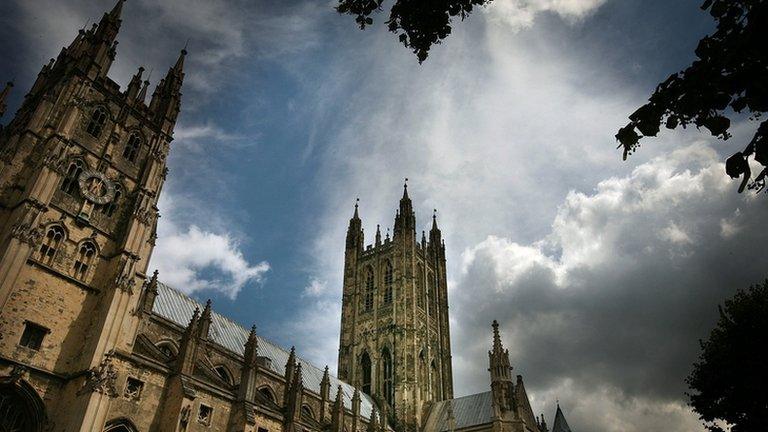Church of England fund sees 'stellar' returns
- Published

The Church of England's investment success has pushed it into the top ranks of the world's best performing funds of its type last year.
The fund made a 17.1% return on its 2016 investments, more than double the 8.2% it made in 2015, according to the Church Commissioners annual report, external.
The Church Commissioners described it as a "stellar outturn".
The body is charged with managing the Church's assets in order to produce money to support its work.
Last year's performance means the fund has returned 9.6% a year for the past 30 years on average.
This puts it ahead of the top-rated Yale University endowment fund, according to the Financial Times.
The Church Commissioners said the performance had been partly driven by the drop in the pound following the Brexit vote, but said strong returns from its investments in global equities, private equity and timber had been "equally helpful".
The Church Commissioners secretary and chief executive Andrew Brown said in all it had contributed £230.7m to the Church of England last year.
"While this is only around 15% of the Church's overall income - most funding comes from the extraordinary generosity of parishioners - we are delighted to be able to play our part."

The Archbishop of Canterbury said the commissioners' "effective stewardship" was matched by ethical and responsible investment in 2016
The Church's ethical investment policy dictates that all investments should be compatible with Christian values and "recommends against investment" in companies which make more than 3% of their income from pornography, 10% from military products and services, or 25% from other industries such as gambling, alcohol and high interest rate lenders.
However, in 2013 it emerged that the Church had invested indirectly in payday loan firm Wonga.
It was a particular embarrassment for the Archbishop of Canterbury, the Most Reverend Justin Welby, who had pledged to try to put Wonga out of business by helping credit unions compete with it.
Payday firms offer short-term loans, often at high interest rates, and have been accused of leading people into more debt.
The Church subsequently ended its investment in the firm.
Responding to the 2016 report, the Archbishop of Canterbury, said: "In a year which saw considerable political turbulence, the Church Commissioners continued to provide effective stewardship of investments matched by ethical and responsible investment."


- Published11 July 2014

- Published26 July 2013
